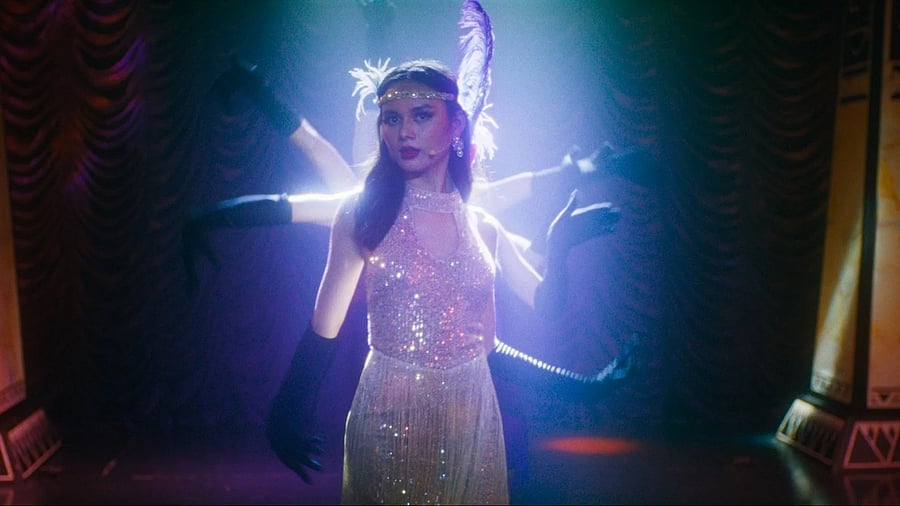
With Goa as its permanent port of call for 22 years, the International Film Festival of India (IFFI), now in its 56th edition, draws cinephiles from across India. This year, it showcased contemporary films that were inclusive and pluralistic.
Since its inception in 1952, IFFI has provided a platform for contemporary world cinema and fostered better appreciation.
The festival, with 250-plus films in 90 languages from 81 countries, saw as many as 50 films by women directors. A new wave of talent took centre stage.
With MAMI, the marquee festival in Mumbai, taking a break this year (they couldn’t find sponsors), IFFI was able to bring a double dose of celebrated films from across the globe.
In the International competition, some of the notables included ‘The Visual Feminist Manifesto’, ‘Songs of Adam’, ‘A Poet’, ‘Little Trouble Girls’, ‘My Father’s Shadow’ and ‘Amrum’.
The country focus this year was Japan, and ‘A Pale View of Hills’, about a widow’s memories spanning post-war Nagasaki and the cold war years in England, stood out. It is an adaptation of Kazuo Ishiguro’s 1982 novel of the same name.
There were at least 10 extra screens across Panaji this year, and that mitigated the crowding to a large extent. A good 50-65% of the films shown at the festival turned out to be not just crowd pullers but also efforts worthy of critical appreciation. In short, it was a well-curated festival.
Panaji streets
In a welcome and much needed departure from past editions, IFFI did away with the traditional opening ceremony. Instead, it had an ‘opening parade,’ bringing pomp, pageantry, and a festive zing to the streets of Panaji. The famed façade of the Old GMC building and the Maquinez Palace theatre looked surreal as Panaji residents, tourists, and passers-by participated in the march.
The parade also featured state tableaus from Tamil Nadu, Jammu and Kashmir, New Delhi, Madhya Pradesh, Uttarakhand, Bihar, and Goa, showcasing their cultural identities. Major production houses also positioned grand cinematic tableaus alongside a special NFDC 50 years’ tableau.
AI presence
Various innovative sections were introduced this time. In keeping with this year’s theme, ‘Convergence of Creativity and Technology’, IFFI launched the country’s first AI Film Festival in collaboration with Waves Film Bazaar and the tech firm LTIMindtree. The experiment got 68 entries from 18 countries, and picked 27 for the final. It also featured award-winning film packages from five international AI film festivals (Adobe Max, AI Film Festival from USA, Burano AI Film Festival from Italy, Metamorph AI Film Awards from UK and Omni Film Festival from Australia), besides 14 individual filmmakers from across the world.
Another notable feature was the Cinema AI Hackathon. Indywood’s AI-generated film ‘Being’ won the Best AI Visualised Film Award at the hackathon.
Academic sessions included a discussion on ‘The new AI cinema’ and a masterclass by VFX wizard Pete Draper.
NFDC Film Bazaar, rebranded as Waves Film Bazaar, was held parallelly. Its aim is to encourage collaborations in cinema—it featured stalls representing various states showcasing their film policies and initiatives. Karnataka was conspicuous by its absence.
Masterclasses
The academic sessions at Kala Academy were put together well, and saw full attendance throughout. The masterclasses attracted participants from Australia, Japan, Germany, and Canada.
A panel discussed the evolving role of women in contemporary cinema. It featured actor Meenakshi Jayan, filmmaker Rajni Basumatary, cinematographer Fowzia Fathima, and Australian actor Rachel Griffiths. The sessions on writing and editing provided a deep dive into many aspects of the craft, including its aesthetics.
The 56th edition of IFFI reinforced audience faith in its curation. Many who made the annual pilgrimage to Goa returned blessed by cinema, and filled with reminiscence and reflection.